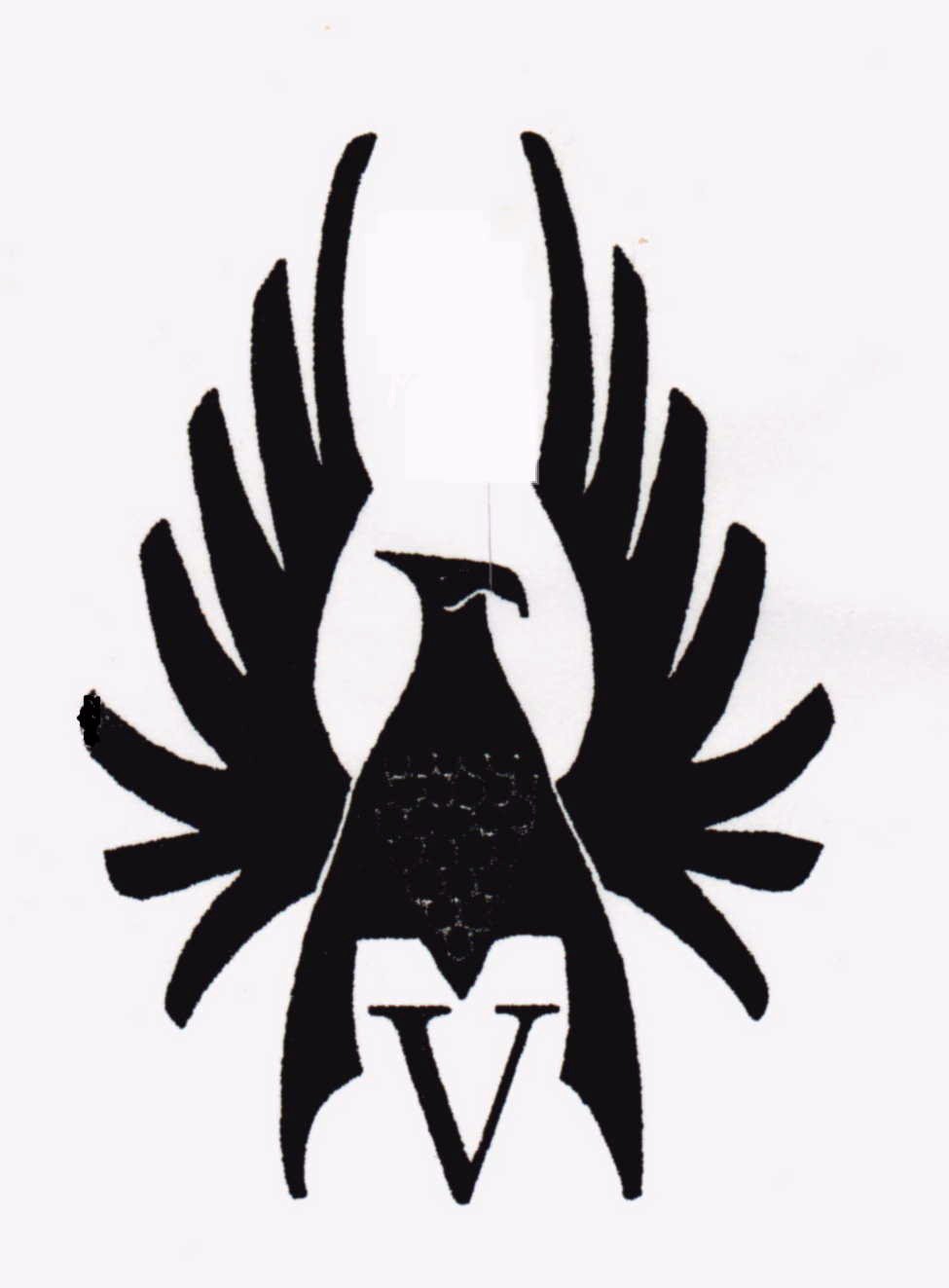|
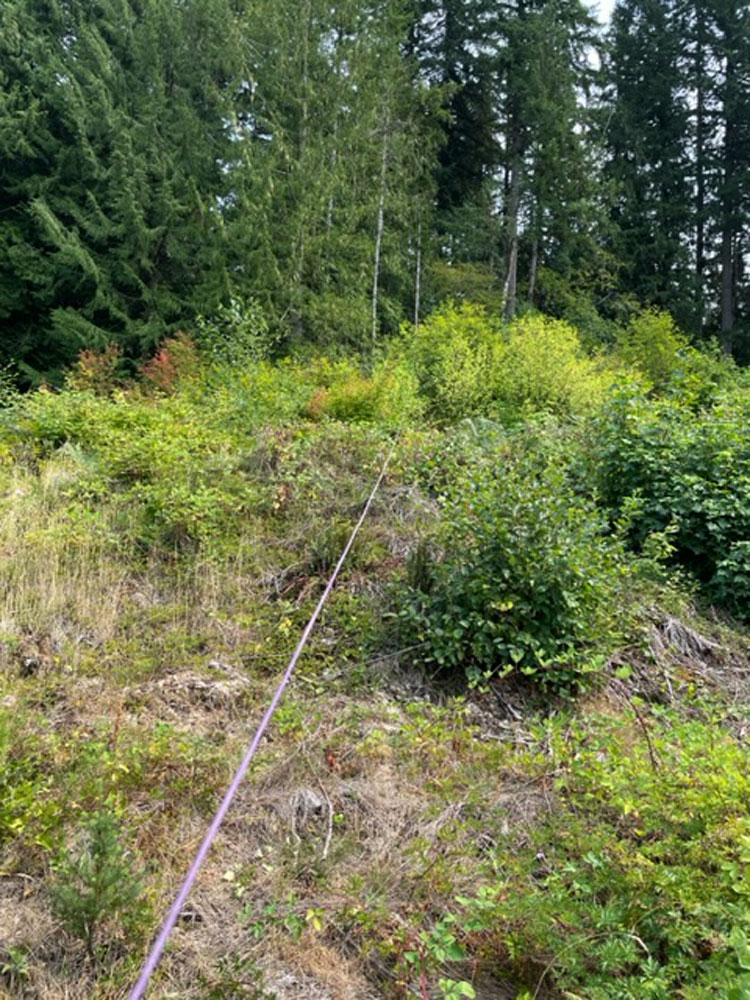
We estimate it's about 130'
This is one of the lengths to avoid per the University of Delaware
Engineering Dept
|
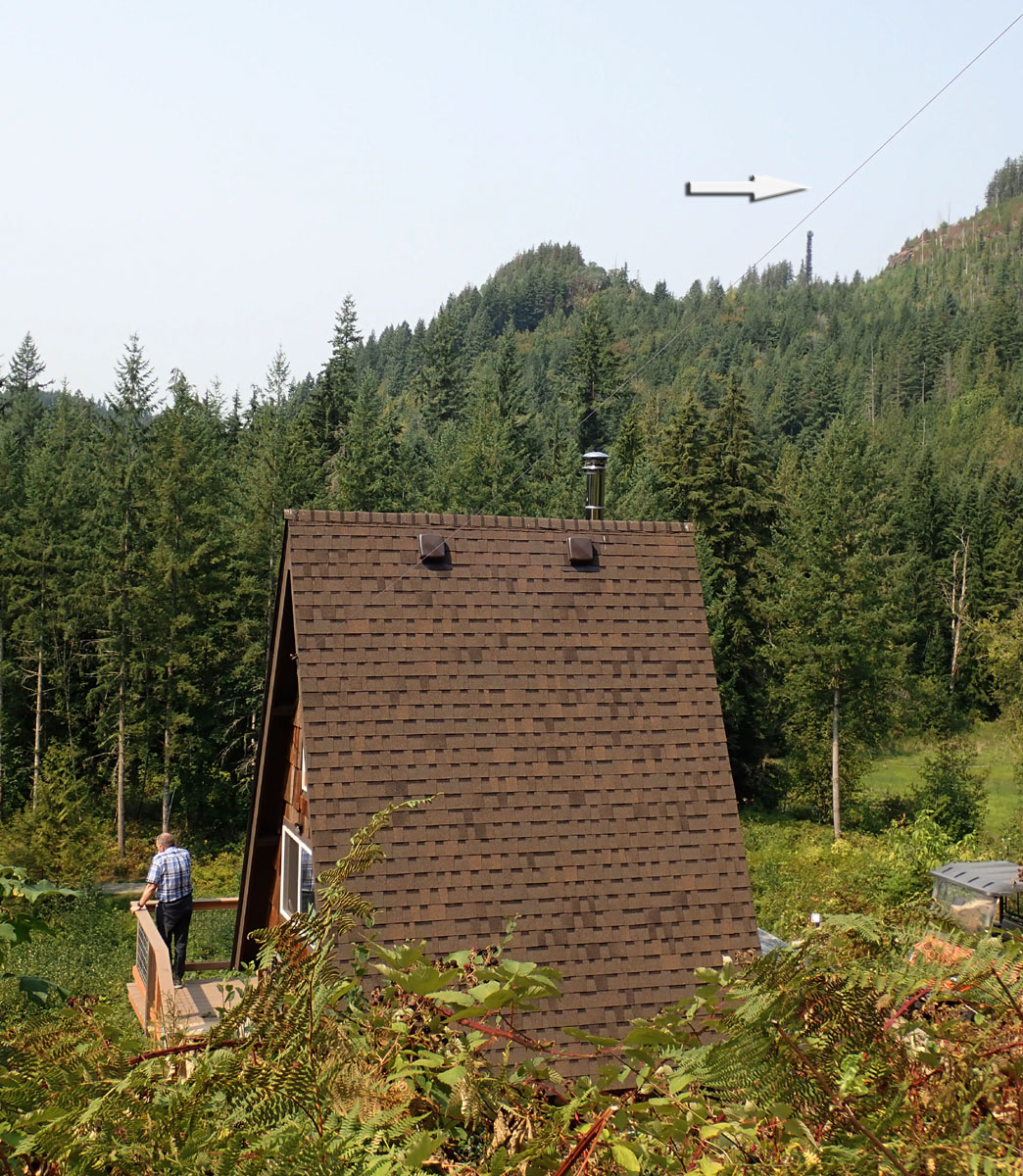
The 14 gauge wire is nearly invisible.
Note the no-so-invisible ATT "tree" cell tower just below the arrow.
No complaints, we get perfect 5G reception! |
|
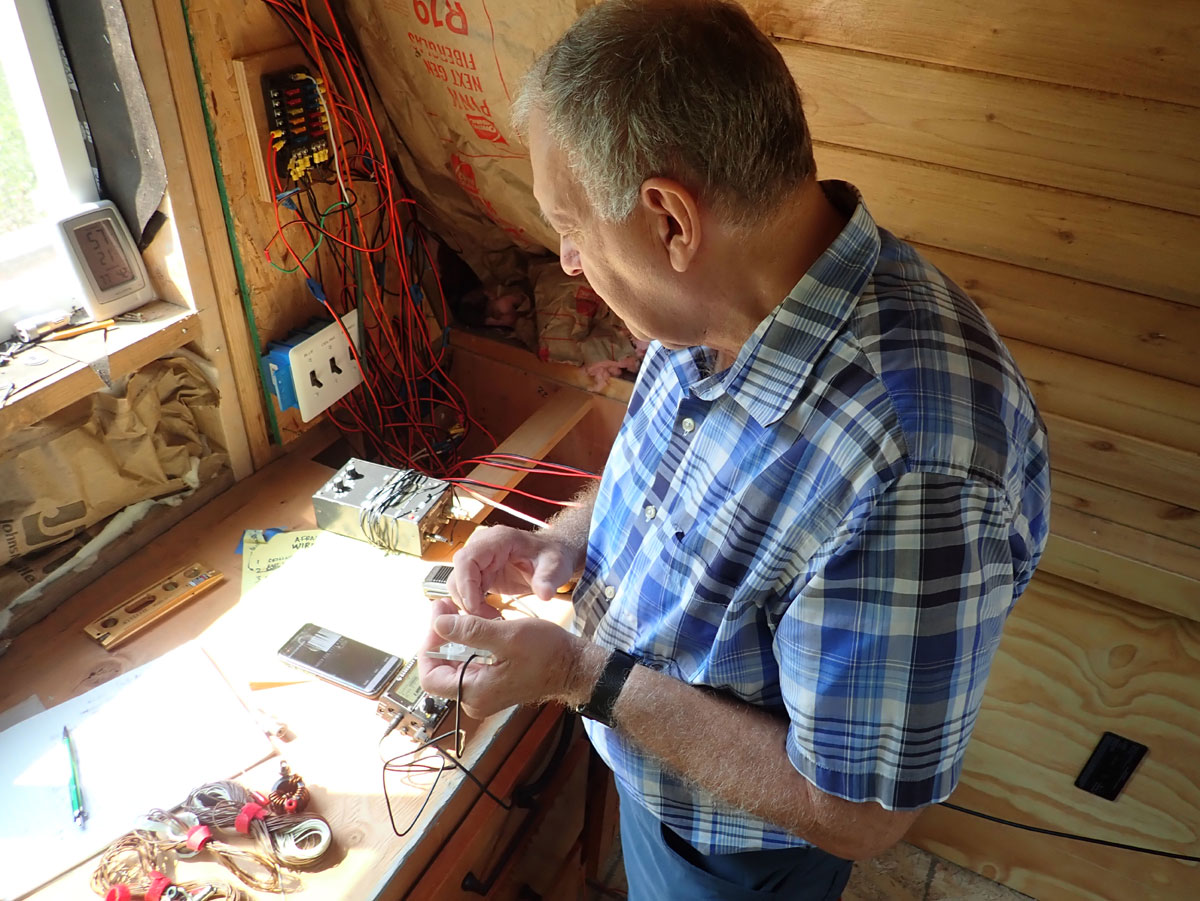
Here's our friend Dan KA7GPP
He has volunteered to come up and hook up his nifty hi-tech VNA (Vector
Network Analyzer) and analyze the antenna and check the performance.
These
VNA instruments used to be the size of a suitcase and cost
thousands of dollars. |
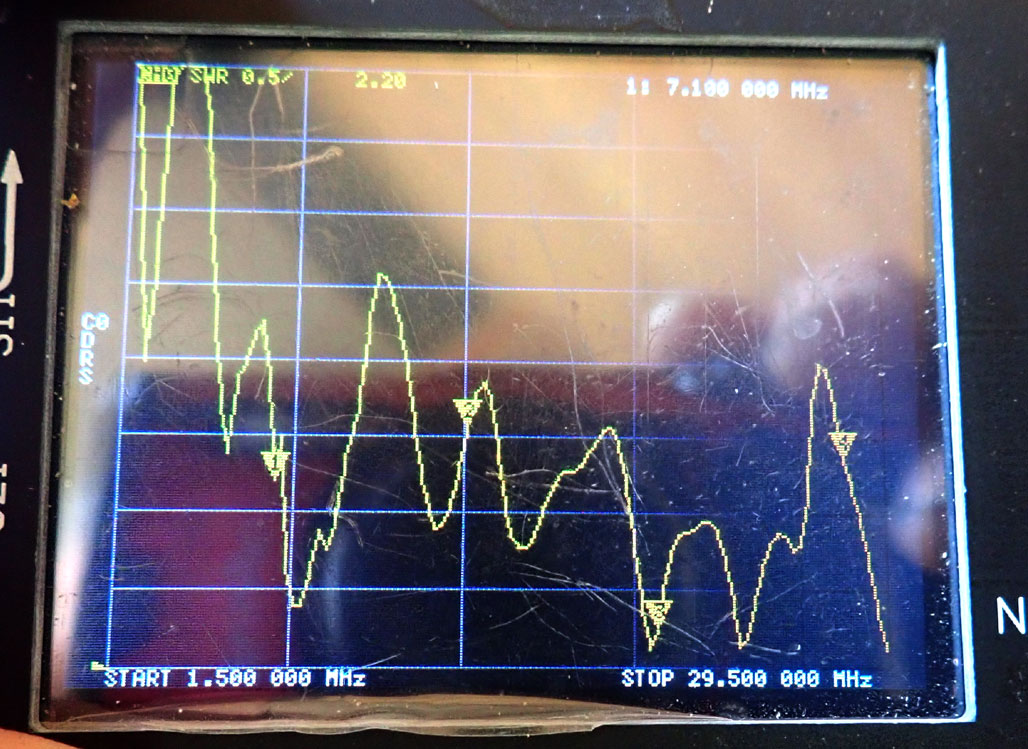
VNA screen shown graphing the test results of our antenna. (not
all that great)
Vector network analyzers accurately measure the
incident, reflected, and transmitted energy, e.g., the energy that
is launched onto a transmission line, reflected back down the
transmission line toward the source (due to impedance mismatch) and
successfully transmitted to the terminating device (such as the
antenna).
|
|
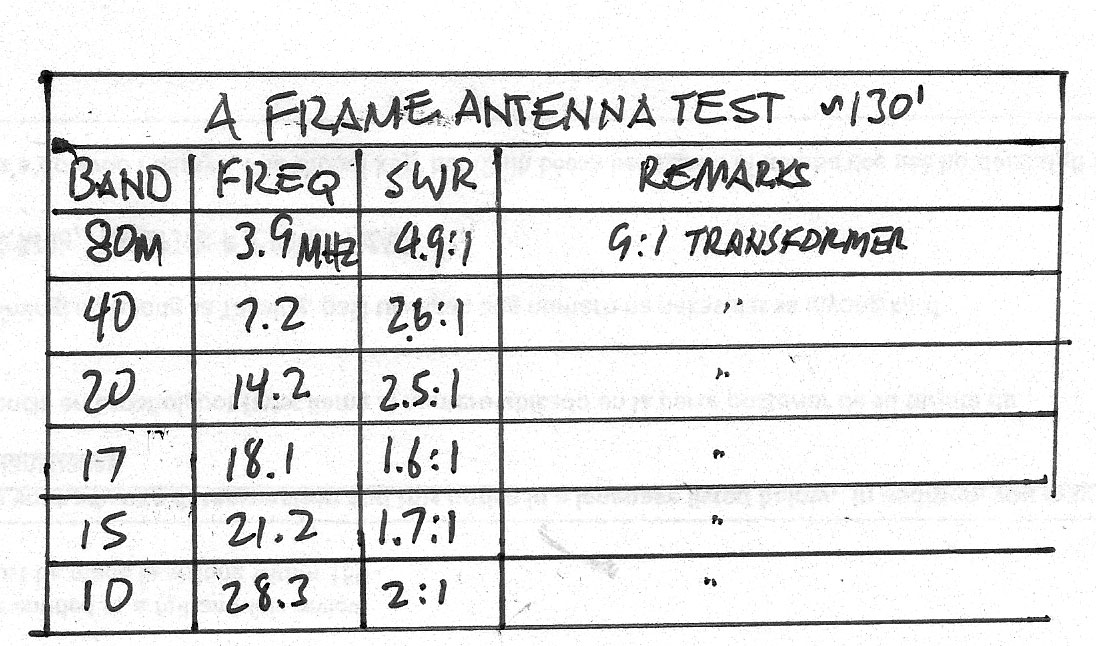
Here's a matrix of the antenna performance.
I drew this as we checked the ham bands with his battery powered
KX3 Radio.
A 1:1
SWR is perfect, higher numbers need to have an antenna tuner.
|
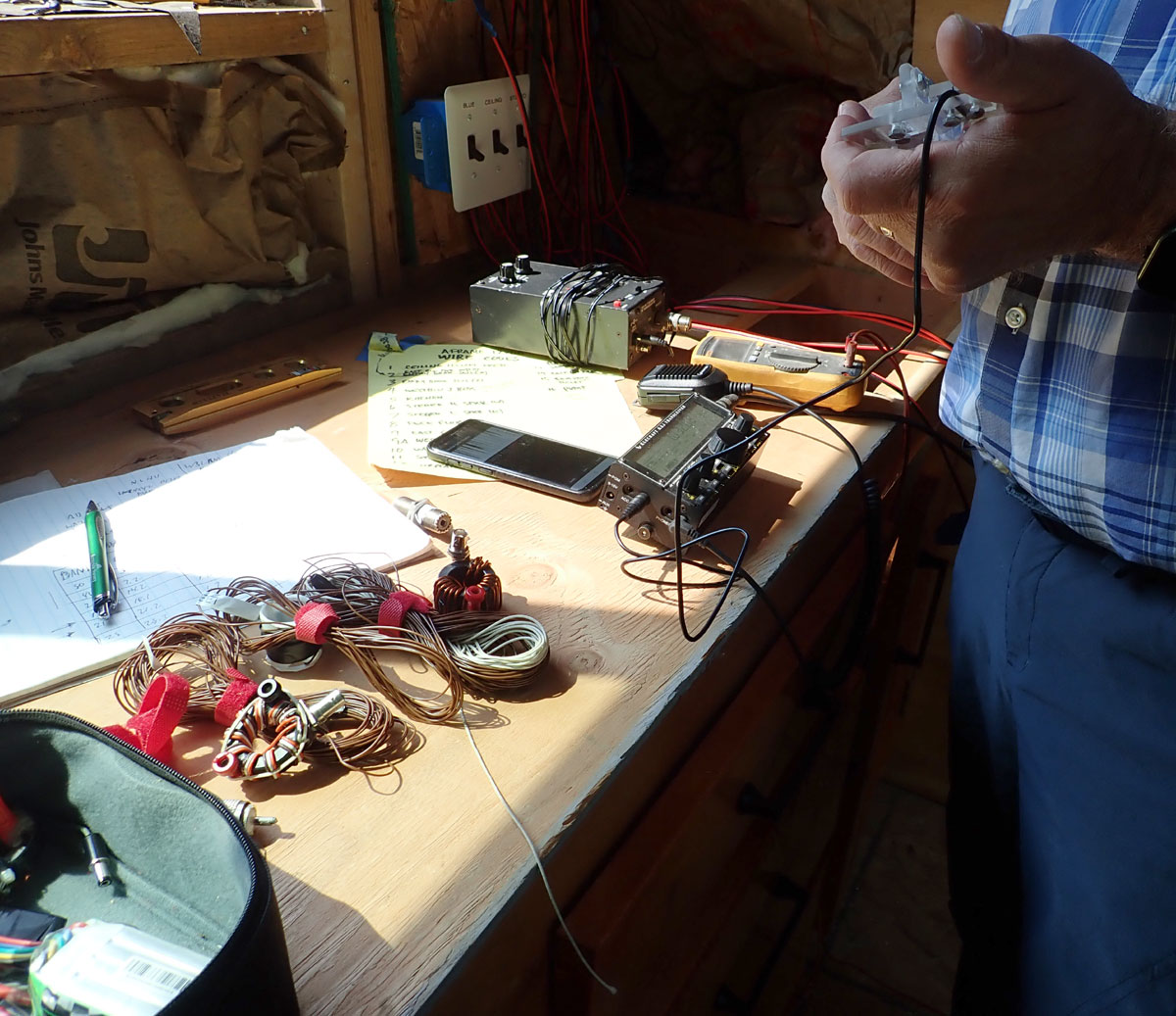
The radio has an internal
antenna tuner so it
easily matched itself to the antenna despite the not-so-great peaks
and dips in our graph.
|
|
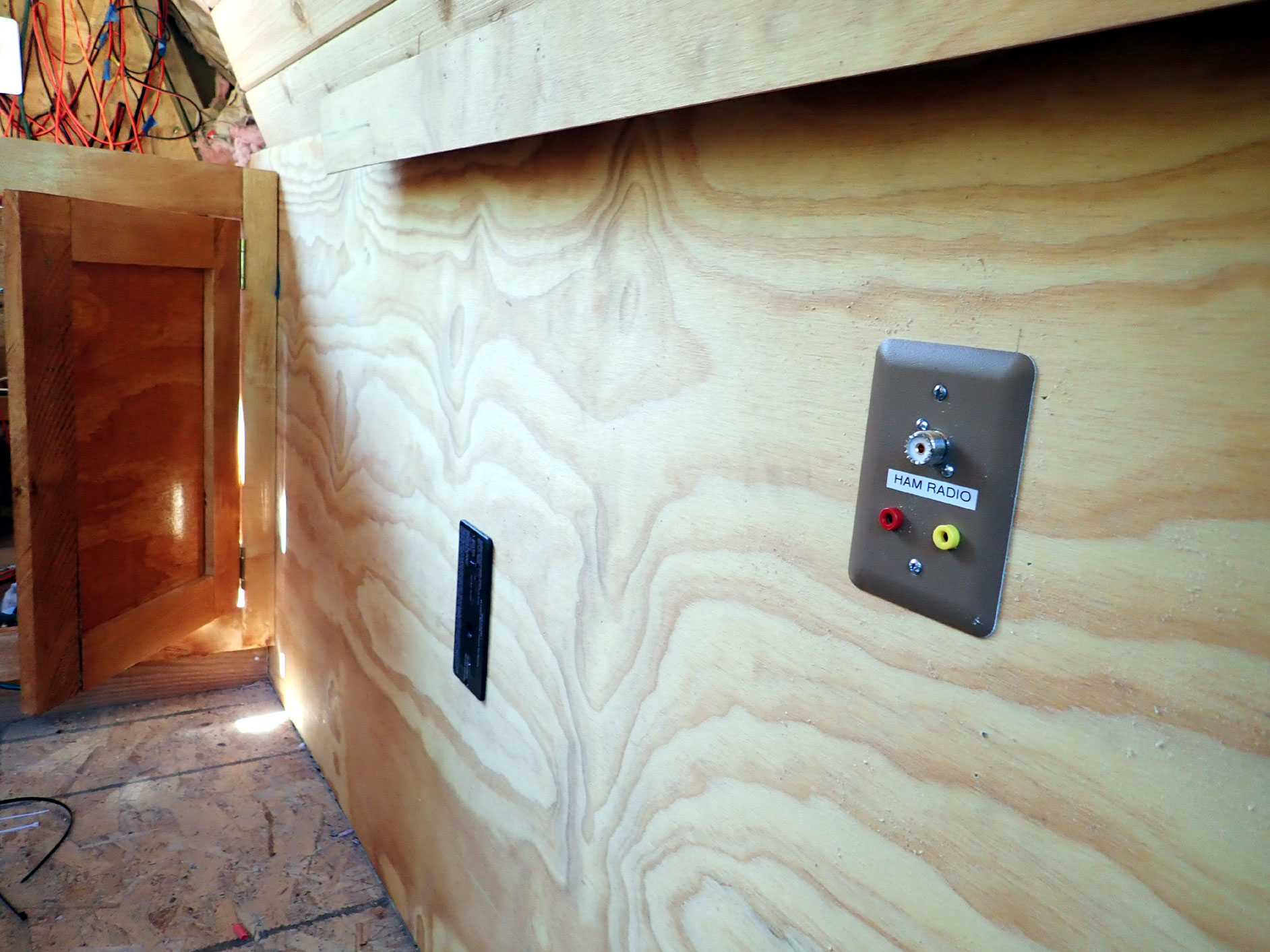
Here's the connection plate with power and
antenna connections
Black plate in the background is a CO/LPG monitor/alarm.
We used stained/natural 1/4" plywood for the walls. |

Shot of the initial wiring of the cabin west
wall.
Coax cable from the roof and 12Volt power for the radio hookup.
Note the odd spacing of the 2x6s in the wall.
This was due to we used repurposed concrete forms from the
new ATT cell tower
up behind us. |
